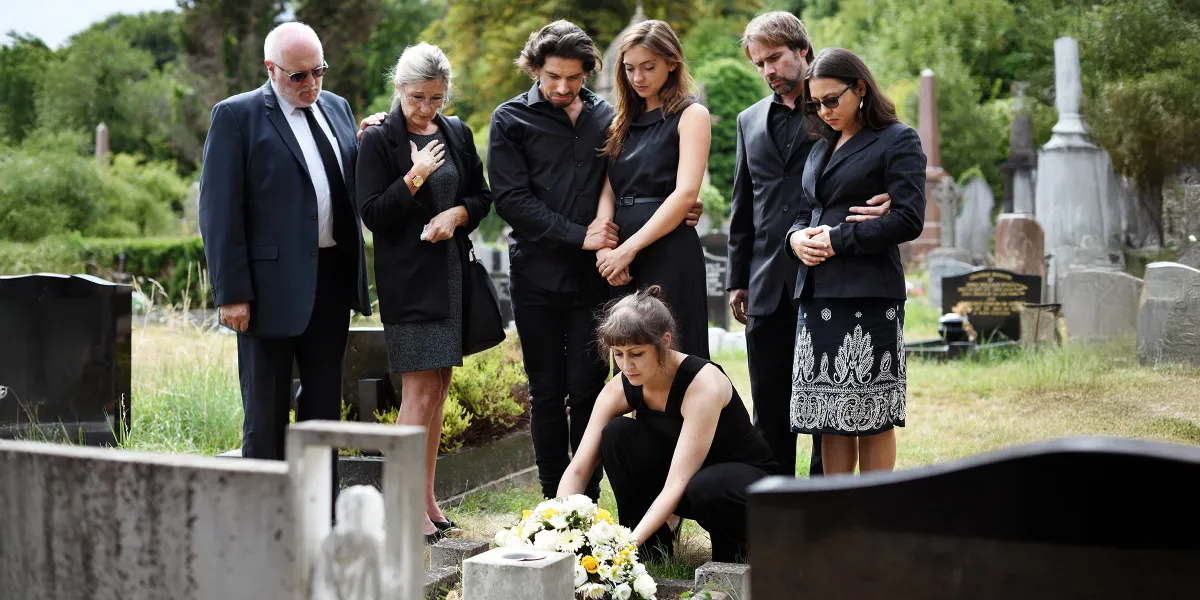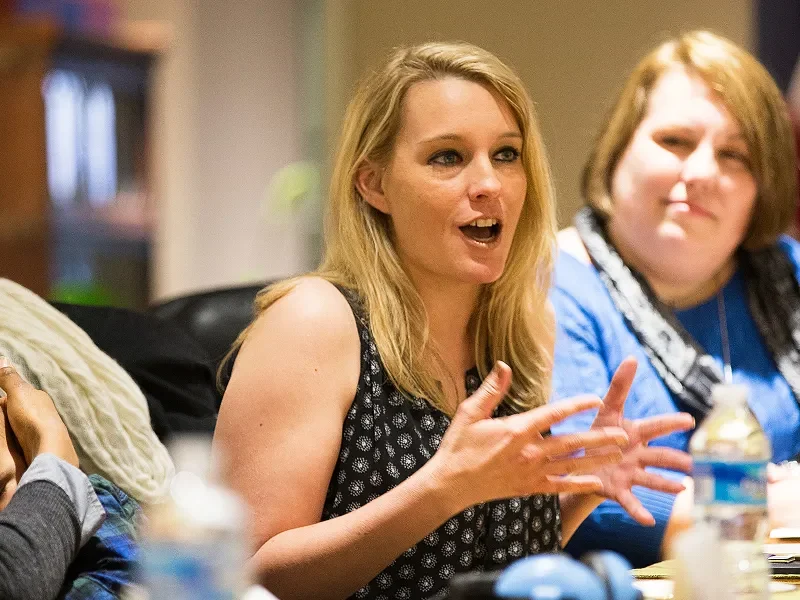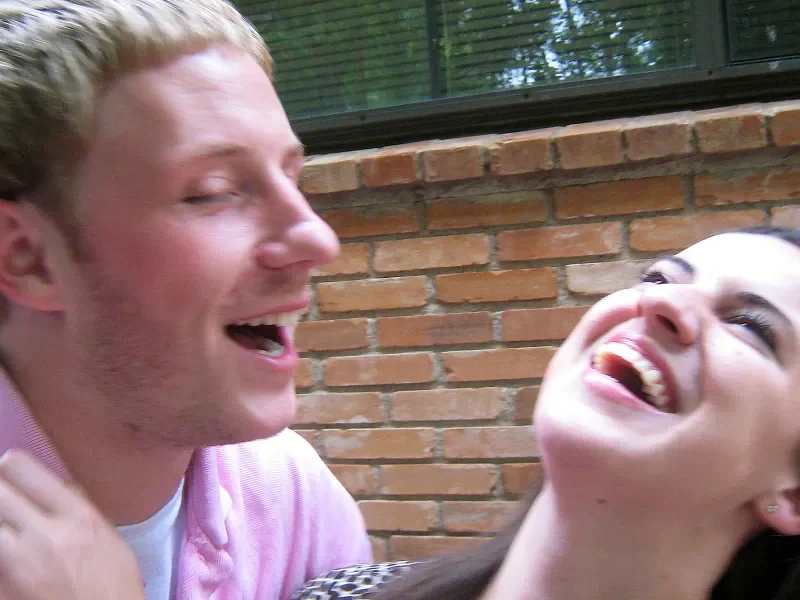I grew up believing my father had walked out on me without a second thought. But at his funeral, a stranger handed me a key—and with it, the truth I never saw coming.
My father left when I was three. Or so I thought.
Growing up, I never saw him. Never heard his voice. Never got a birthday call or a Christmas card. He was a shadow, a name, a ghost my mother wouldn’t talk about.
“Don’t ask about him,” she’d snap. “He made his choice.” And that was it. No stories. No photos. No second chances.
For most of my life, I believed her. I had no reason not to.
It started changing when I was seven. I found the card.
It was in the trash, under coffee grounds and an empty can of soup. The envelope was still sealed. My name was written on the front in neat, careful handwriting.
“Mom?” I called, holding it up.
She glanced at it and her face turned cold. “Throw that away.”
“But it’s mine.”
“No,” she said sharply. “It’s from him.”
I stared at her. “Who?”
“You know who,” she said. “Your father.”
I hesitated. “Can I open it?”
“No.” Her voice was firm. “That man doesn’t get to be part of your life.”
She took it from me and tossed it back into the trash. I didn’t argue. I just stood there. I was too young to understand. Too scared to push.
When I was 12, I tried again.
“Why did he leave us?”
She didn’t look up from the laundry.
“He left. That’s all that matters.”
“Did he… was he mean?”
She turned then, folding a towel hard. “He didn’t want us. He walked out. What more do you need to know?”
“But—”
“No ‘but,'” she snapped. “He’s not someone worth knowing.”
So I stopped asking.
I didn’t look him up when I got older. Didn’t wonder much. I built my life without him. Because as far as I knew, he didn’t want to be part of it.
Then one day, a number I didn’t know popped up on my phone. I almost didn’t answer.
“Hello?”
“Is this… Emma Carlson?” the woman asked. Her voice was quiet, almost nervous.
“Yes. Who is this?”
“My name is Laura. I’m… I’m sorry, I don’t know how to say this.” She took a breath. “I’m your father’s wife. He passed away last week.”
Silence.
“I thought you should know,” she added. “The funeral is tomorrow.”
“I—” My mouth went dry. “I don’t think I can—”
“I understand,” she said gently. “But… if you decide to come, I think he would’ve wanted that.”
I sat in my car outside the chapel for 10 minutes before I finally walked in.
I kept my head down, sat near the back. I didn’t recognize anyone. I felt like I didn’t belong.
But then, someone sat beside me. A woman. Maybe in her late fifties. She wore a dark coat and her eyes were red.
“Emma?” she whispered. I turned, surprised.
“I’m Laura,” she said. “I’m glad you came.”
I gave a small nod. I didn’t know what to say.
After the service, she touched my arm.
“There’s something you should see,” she said. “Something he left for you.”
I blinked. “Me?”
She reached into her purse and pulled out a small silver key.
“He never stopped thinking about you,” she said quietly. “Would you… come with me? To the lawyer’s office?”
I stared at the key in her palm. My hands were shaking, but I reached out and took it.
We ended up in a quiet lawyer’s office. Everything smelled like leather and paper.
I sat stiffly across from a man in a navy suit. Laura sat beside me, her hands folded in her lap. She didn’t say much, just gave me a soft, encouraging look.
“We’ll begin,” the lawyer said, flipping through a thick folder. “Richard left behind specific instructions for this reading.”
He paused and glanced at me.
“To his daughter, Emma, he leaves the contents of a personal safe, a trust fund, and a written letter.”
My heart stopped. “He mentioned me?”
“Yes,” he said. “Specifically and clearly.”
He pulled out a black box with a dial and set it on the table. Laura slid the small key I’d been carrying into the lock. It clicked open. Inside were papers—some yellowed, some recent. He handed me the top file.
“These are court documents,” he said. “Your father petitioned for visitation several times.”
I opened it, hands trembling. There were stamped forms, letters from lawyers, even dates of hearings.
“He was never accused of abuse or neglect,” the lawyer continued. “Your mother… she claimed emotional instability. But there was no medical evidence, no testimony. Just her statement.”
I looked at Laura. She nodded sadly.
“There’s more,” the lawyer said. “This memo—” He pointed to a typed note. “—mentions the reason behind her resistance. After the divorce, your father married your mother’s former best friend.”
My breath caught. “What?”
“She never forgave him,” Laura whispered. “She cut him out. And she… she made it impossible for him to reach you.”
I pulled out more papers. Letters addressed to me. Return-to-sender marks. Unopened birthday cards in little envelopes. Packages with my name, all stamped ‘Undeliverable.’
My throat ached. “He tried.”
“Yes,” Laura said. “He never stopped.”
The lawyer slid a thick envelope across the table.
“This is the trust fund,” he said. “And this… is the note he left.”
I unfolded the paper.
“For the life I wish I’d been allowed to give you. I hope this helps you build it anyway. I never stopped loving you.”
Tears fell silently. I couldn’t speak.
We drove to their house in silence. My mind buzzed, heavy and light at the same time. Inside, Laura led me down a narrow hallway. At the end, she paused beside a small white door.
“He asked me not to change this room,” she said. “Not even after he got sick.”
She opened it slowly. It looked like a memory museum. Not of him—of me.
There were shelves of framed school photos, starting from kindergarten. Clippings from my high school paper. A program from my college graduation.
I stepped closer. My favorite childhood book was sitting on the desk. My fifth-grade art project, a wobbly clay bowl I gave to a family friend, sat on a shelf.
“How did he get all this?” I whispered.
“He followed everything,” Laura said softly. “Social media, old friends, anyone who would give him a scrap of your life. He kept it all here.”
In the corner was a dried flower taped to the wall.
“That’s from your graduation bouquet,” she said. “He stood at the back of the field. He didn’t want to ruin anything. He just wanted to see you.”
I stared at it, frozen.
“He called this his ‘hope room,'” she said. “He hoped one day you’d walk through that door.”
I turned in a slow circle, taking it all in. My life, watched from a distance. Loved in silence.
“I thought he didn’t care,” I said, voice cracking.
“He always did,” she whispered. “He just wasn’t allowed to show you.”
I sat on the edge of the bed, holding one of the cards he’d written.
I had been angry for so long. But now all I could feel was sorrow. Not for me. For him. For what we lost. And for the first time, I didn’t feel alone.
I started seeing Laura once a week. At first, it felt awkward. We’d sit in her kitchen, sipping tea, talking about the weather or the traffic. But little by little, we opened up.
She showed me old photos—my father fishing, laughing, dancing in the living room with two kids on his shoulders.
“He loved to cook,” she told me one afternoon. “Pancakes every Saturday. Even made faces with the syrup.”
I smiled weakly.
Then she said, “They’d love to meet you. If you’re ready.”
I wasn’t sure I was. But I said yes. Her son, Caleb, looked just like Dad. Her daughter, Lily, had his eyes.
“Hi,” I said nervously.
“Hi,” Lily grinned. “You like board games? Dad always cheated at Monopoly.”
I laughed before I could stop myself.
They told stories—so many stories. Birthdays he never missed. Bedtime songs he made up. His bad jokes, his favorite movie, the way he danced while doing dishes.
Every word was like a little tug inside me. At first, it hurt. I’d missed all of it. But then something changed. Instead of jealousy, I felt… peace.
They weren’t rubbing it in. They were sharing him with me.
I began to see my father not as the man my mother hated, but as someone real. Someone full of love. Someone who had tried. Each visit with them softened me. The sharp edge of my anger dulled. The sadness stayed, but it didn’t crush me anymore.
Laura said one day, “He would’ve been so proud of you.”
I believed her. For the first time in my life, I believed that he had wanted me. And somehow, that made all the difference.


